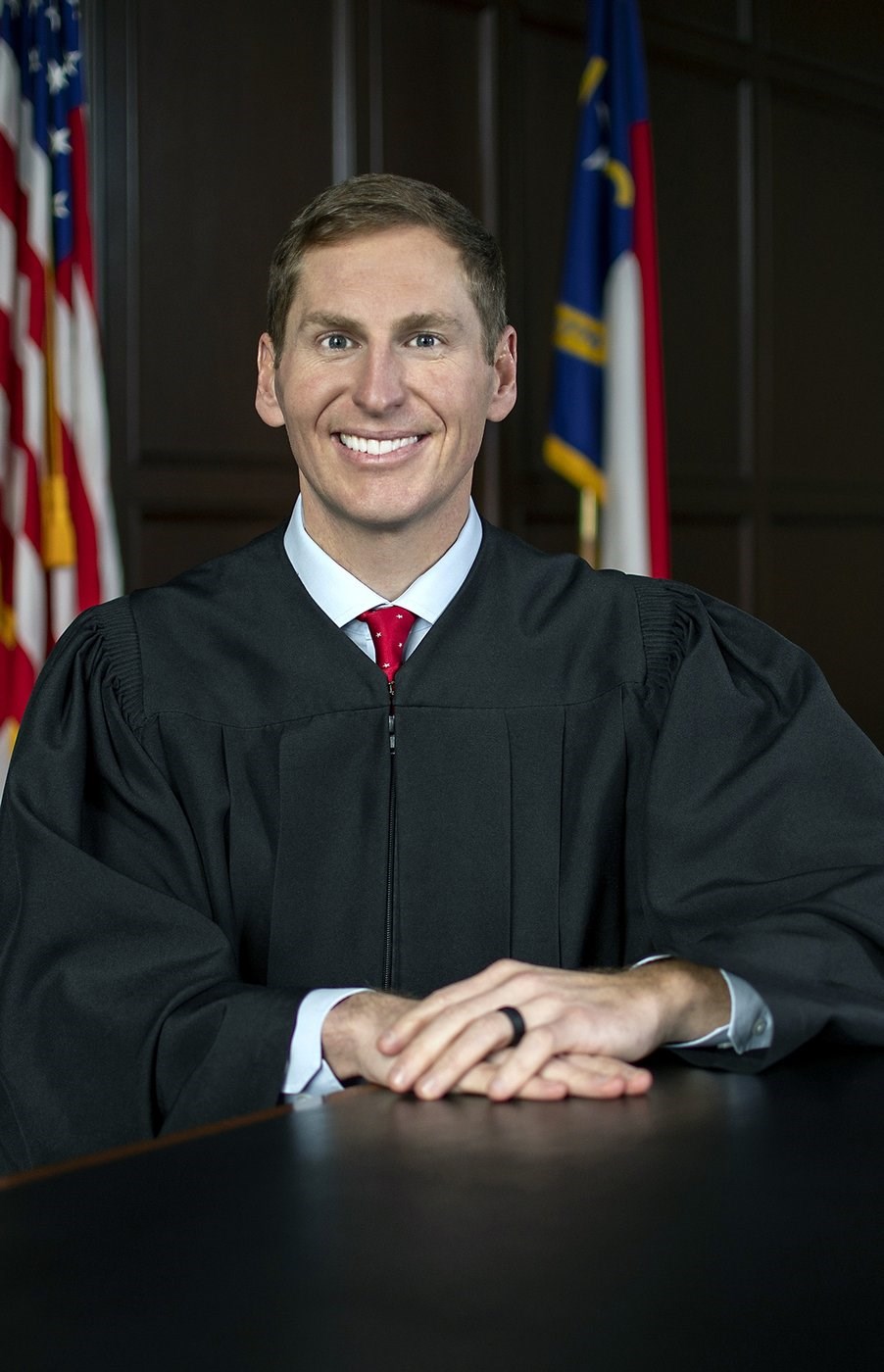RALEIGH, N.C. (AP) — A North Carolina appeals court sided Friday with the trailing Republican candidate in an extremely close state Supreme Court election, a ruling that could flip the result of the nation’s only 2024 race that is still undecided.
In a 2-1 decision with registered Republican judges composing the majority, a panel of the intermediate-level Court of Appeals ruled that ballots — likely tens of thousands of them — were wrongly allowed in the tally. But the ruling, if upheld, would give most of those voters a three-week window to provide additional information for their choices to count, or see the ballots get removed.
The disputed ballots are believed to favor Democratic Associate Justice Allison Riggs, who, after two recounts, held a 734-vote lead over Republican Jefferson Griffin in their race, which saw over 5.5 million ballots cast.
The judges on Friday found that the State Board of Elections got it wrong in December when it dismissed Griffin's election protests. Riggs quickly announced an appeal of the decision that should soon reach the state Supreme Court.
Griffin's postelection protests challenged over 65,000 ballots in three different categories. Griffin currently serves on the Court of Appeals and had recused himself from the case deliberations within the court, where some of his colleagues ruled favoring him.
Friday's prevailing opinion declares that the board should have found that ballots from within each of the categories shouldn’t be counted because they failed to comply with state law or the state constitution. The decision also reverses decisions of a trial judge who in February upheld the board’s actions.
“Free elections under ... the North Carolina Constitution include the right to an accurate counting of votes,” said the opinion backed by Judges John Tyson and Fred Gore. “Griffin has a legal right to inquire into this outcome through the statutorily-enacted and postelection procedures available to him.”
The largest category of ballots challenged were cast by individuals whose registration records lacked a driver’s license number or last four digits of a Social Security number. The information has been required of registrants since 2004, but Griffin’s attorneys argue the board failed to carry out the requirement properly for years. Another category came from military or overseas voters who did not provide copies of photo identification or ID exception forms with their ballots. Photo voter ID is otherwise required in North Carolina.
For these two categories, the judges ultimately directed the state board to tell county election officials to notify the voters and give them 15 business days to provide missing information or photo identification. If provided in time and verified, then those ballots would still count, the opinion reads.
In the third category — involving potentially hundreds of overseas voters who have never lived in the U.S. — their ballots cannot be counted because they're ineligible under state residency laws, according to Tyson and Gore.
Court of Appeals Judge Toby Hampson, a registered Democrat on the panel writing a dissenting opinion, said that Griffin hadn’t identified a single voter who was ineligible to vote in the November elections under the rules governing the election. Lawyers for Riggs and the board have said the ballots were cast lawfully, and state laws and rules that have been applied to elections for years can’t be altered retroactively.
To accept Griffin's "indiscriminate efforts to call into doubt the votes of tens of thousands of otherwise eligible voters, without any showing any challenged voter was disqualified under existing law from voting is to elevate speculation and surmise over evidence and reason,” Hampson wrote.
Griffin’s attorneys have said previously their client believes he'll win if the challenged unlawful ballots are excluded.
Riggs' allies have pointed out that the ballots challenged on the ID mandate, for example, largely came from Democratic-leaning counties. It's unclear how many voters will attempt to participate in the “cure” process.
In a prepared statement, Griffin's campaign committee praised Friday's decision, saying “we stand by the process of allowing the State Board a second chance to do its job and ensure that only eligible voters cast ballots in our elections.”
The eight-year term on the highest court in the ninth-largest state was supposed to begin in January. Riggs has meanwhile remained serving in her seat. She’s also recused herself from preliminary deliberations in the protests that have already been heard by the Supreme Court.
Riggs said Friday’s ruling was a “deeply misinformed decision that threatens to disenfranchise more than 65,000 lawful voters and sets a dangerous precedent, allowing disappointed politicians to thwart the will of the people.”
Five of the six remaining justices on the Supreme Court are registered Republicans. Lawyers for Riggs and the board also have already signaled they will take the matter to federal court if necessary.
Gary D. Robertson, The Associated Press



